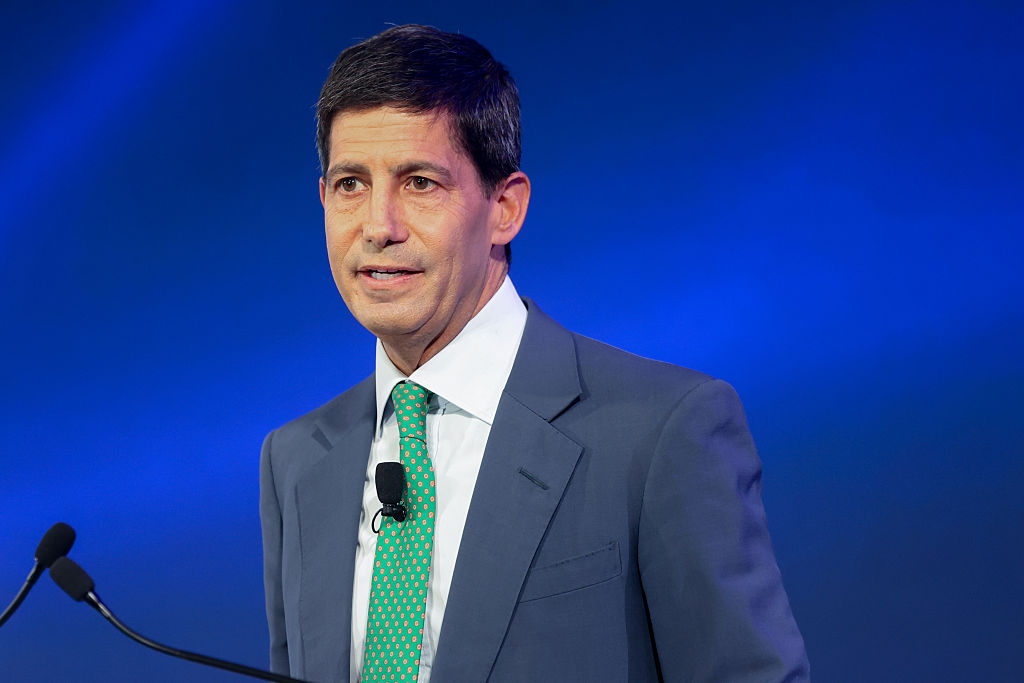Callable CDs: Was Your High-Yield CD Called Back Before It Matured?
Here's what you need to know about callable CDs, which let banks redeem your CD before its official maturity date.

Profit and prosper with the best of Kiplinger's advice on investing, taxes, retirement, personal finance and much more. Delivered daily. Enter your email in the box and click Sign Me Up.
You are now subscribed
Your newsletter sign-up was successful
Want to add more newsletters?

Delivered daily
Kiplinger Today
Profit and prosper with the best of Kiplinger's advice on investing, taxes, retirement, personal finance and much more delivered daily. Smart money moves start here.

Sent five days a week
Kiplinger A Step Ahead
Get practical help to make better financial decisions in your everyday life, from spending to savings on top deals.

Delivered daily
Kiplinger Closing Bell
Get today's biggest financial and investing headlines delivered to your inbox every day the U.S. stock market is open.

Sent twice a week
Kiplinger Adviser Intel
Financial pros across the country share best practices and fresh tactics to preserve and grow your wealth.

Delivered weekly
Kiplinger Tax Tips
Trim your federal and state tax bills with practical tax-planning and tax-cutting strategies.

Sent twice a week
Kiplinger Retirement Tips
Your twice-a-week guide to planning and enjoying a financially secure and richly rewarding retirement

Sent bimonthly.
Kiplinger Adviser Angle
Insights for advisers, wealth managers and other financial professionals.

Sent twice a week
Kiplinger Investing Weekly
Your twice-a-week roundup of promising stocks, funds, companies and industries you should consider, ones you should avoid, and why.

Sent weekly for six weeks
Kiplinger Invest for Retirement
Your step-by-step six-part series on how to invest for retirement, from devising a successful strategy to exactly which investments to choose.
Did you open a CD with a stellar APY only to have it called back before its maturity date? If you have what’s known as a “callable CD,” you may not have actually locked in that high CD rate for the entire term.
Typically, callable CDs offer higher rates than traditional CDs, but they require more investment strategy. Getting the highest yield possible may sound like a great reason to open a callable CD — until the bank redeems your CD far before its maturity date, leaving you to open another account at a lower rate.
Didn’t read the fine print and had your CD “called” back unexpectedly? Here’s what you need to know about callable CDs.
From just $107.88 $24.99 for Kiplinger Personal Finance
Become a smarter, better informed investor. Subscribe from just $107.88 $24.99, plus get up to 4 Special Issues

Sign up for Kiplinger’s Free Newsletters
Profit and prosper with the best of expert advice on investing, taxes, retirement, personal finance and more - straight to your e-mail.
Profit and prosper with the best of expert advice - straight to your e-mail.
What is a callable CD?
Callable CDs are similar to traditional CDs, but there is one key difference. Callable CDs let the bank or brokerage firm call back your CD before its official maturity date. You will still receive your entire principal and any interest you have earned until that point, but you’ll miss out on future earning potential. Often, callable CDs have longer terms than traditional CDs, with maturities usually ranging from 15 to 20 years.
When savings rates fall, a bank is more likely to call back a CD. If you open the CD with a 5% interest rate and rates have fallen significantly since then, it’s not in the bank's best interest to pay that 5% rate. On the other hand, if rates increase, your CD is less likely to be called.
Rates on savings accounts have been steadily dropping, especially after the Fed’s September meeting, when it cut interest rates for the first time in four years. Back in 2022, when the Fed began its rate-hiking campaign, savings rates skyrocketed, leading to a surge in popularity among CD accounts. However, as inflation cooled, the Fed paused rate hikes before eventually cutting rates by 50 basis points, which caused yields on CD accounts to fall significantly.
To browse current rates on traditional CD accounts, use our tool below, powered by Bankrate.
However, the bank can't call a CD until the call protection period has ended. The call protection period is the timeframe from when you open the account until the issuer can call back the CD, which can range from a few months to a few years, depending on the maturity of the account.
Bottom line
While callable CDs offer higher rates than traditional CD accounts, they have one huge caveat — the bank can revoke the CD before its set maturity day, which is typically done when rates fall. And rates have been on the decline in recent months. So before you open a CD, be sure to read the fine print, or you could miss out on future earnings. And if you do decide to open a callable CD, ensure you have an investment strategy in place for when it gets called.
Related Content
Profit and prosper with the best of Kiplinger's advice on investing, taxes, retirement, personal finance and much more. Delivered daily. Enter your email in the box and click Sign Me Up.

Erin pairs personal experience with research and is passionate about sharing personal finance advice with others. Previously, she was a freelancer focusing on the credit card side of finance, but has branched out since then to cover other aspects of personal finance. Erin is well-versed in traditional media with reporting, interviewing and research, as well as using graphic design and video and audio storytelling to share with her readers.
-
 Nasdaq Leads a Rocky Risk-On Rally: Stock Market Today
Nasdaq Leads a Rocky Risk-On Rally: Stock Market TodayAnother worrying bout of late-session weakness couldn't take down the main equity indexes on Wednesday.
-
 Quiz: Do You Know How to Avoid the "Medigap Trap?"
Quiz: Do You Know How to Avoid the "Medigap Trap?"Quiz Test your basic knowledge of the "Medigap Trap" in our quick quiz.
-
 5 Top Tax-Efficient Mutual Funds for Smarter Investing
5 Top Tax-Efficient Mutual Funds for Smarter InvestingMutual funds are many things, but "tax-friendly" usually isn't one of them. These are the exceptions.
-
 My Spouse and I Are Saving Money for a Down Payment on a House. Which Savings Account is the Best Way to Reach Our Goal?
My Spouse and I Are Saving Money for a Down Payment on a House. Which Savings Account is the Best Way to Reach Our Goal?Learn how timing matters when it comes to choosing the right account.
-
 How to Budget as a Couple Without Fighting About Money
How to Budget as a Couple Without Fighting About MoneyThese tips will help you get on the same page to achieve your financial goals, with minimal drama.
-
 3 Reasons to Use a 5-Year CD As You Approach Retirement
3 Reasons to Use a 5-Year CD As You Approach RetirementA five-year CD can help you reach other milestones as you approach retirement.
-
 4 Psychological Tricks to Save More in 2026
4 Psychological Tricks to Save More in 2026Psychology and money are linked. Learn how you can use this to help you save more throughout 2026.
-
 Trump Nominates Kevin Warsh to Fed Chair. How Will This Impact Savers?
Trump Nominates Kevin Warsh to Fed Chair. How Will This Impact Savers?Here's a look at how Warsh could influence future Fed policy if he's confirmed.
-
 Why Your Bank Suddenly Lowered Your APY — And What to Do Next
Why Your Bank Suddenly Lowered Your APY — And What to Do NextWhy banks lower APYs, options you can explore when it happens and whether more rate cuts are on the horizon.
-
 Do You Have a CD Maturing Soon? Here's What to Do Next
Do You Have a CD Maturing Soon? Here's What to Do NextThese strategies of what to do when you have a CD maturing soon will have you maximizing returns even with rate cuts.
-
 How to Open and Maintain an Online Savings Account Safely
How to Open and Maintain an Online Savings Account SafelyOnline banks offer generous APYs that most brick-and-mortar banks can't match. If you want to make the switch to online but have been hesitant, I'll show you how to do it safely.